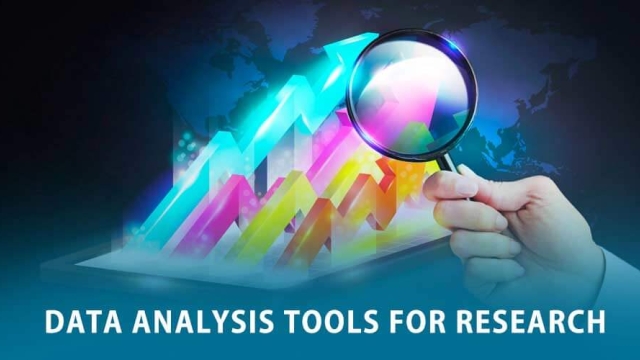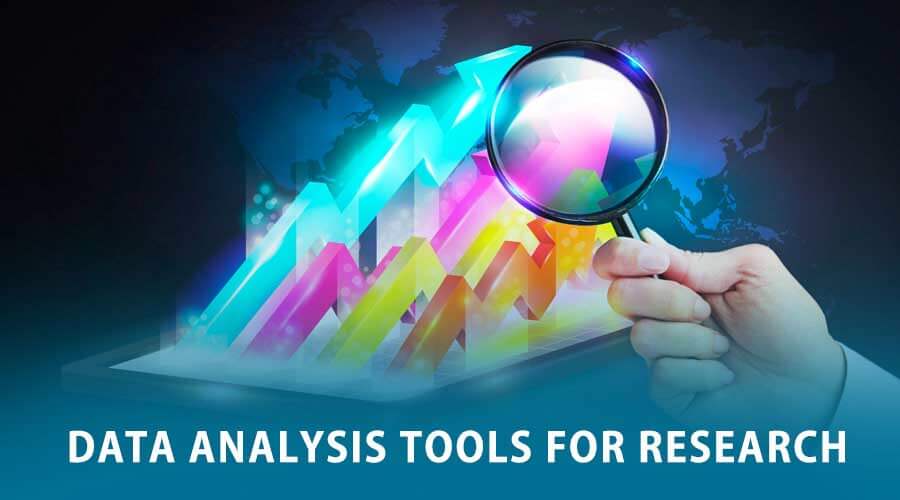
Unveiling Insights: Navigating the Depths of Research and Data Analysis

In the vast realm of knowledge, research and data analysis serve as guiding compasses, unveiling insights that have the power to shape our understanding of the world. They are the sophisticated tools through which we navigate the depths of information, seeking to unravel patterns, draw meaningful conclusions, and make well-informed decisions. With their integration, we transcend mere assumptions and embark on a voyage of evidence-based discovery, fostering progress in diverse fields and disciplines.
Research anchors us in the realm of exploration, a continuous quest for new knowledge and understanding. It encompasses a systematic process of inquiry, where curious minds venture into uncharted territories, driven by the desire to solve problems or uncover hidden truths. It involves meticulous planning, methodical data collection, and rigorous analysis, ultimately leading to the generation of valuable insights and perspectives.
Data analysis, on the other hand, empowers researchers to make sense of the vast amount of information available to us. It involves the careful examination and interpretation of data, transforming raw numbers and statistics into meaningful findings. Through various statistical techniques and tools, patterns, trends, and relationships can be discerned, shedding light on intricate phenomena and informing decision-making processes.
In this article, we delve into the heart of research and data analysis, exploring their interconnectedness and uncovering the invaluable contributions they make to our understanding of the world. We will navigate through the intricacies of these processes, illuminating the methods, challenges, and benefits they entail. Join us on this journey as we unveil the depths of research and data analysis, charting a course towards informed knowledge and informed decisions.
Understanding Research Methodology
Research methodology plays a fundamental role in conducting thorough investigations and extracting meaningful insights from data analysis. By adhering to a systematic and structured approach, researchers can ensure the reliability and validity of their findings. In this section, we will explore the key elements of research methodology and its significance in the realm of research and data analysis.
The first essential element of research methodology is the formulation of a clear research question or objective. This serves as the foundation for the entire research process, guiding the selection of appropriate methods and techniques. A well-defined research question provides a focused direction, helping researchers to gather relevant data and derive accurate conclusions.
Next, the selection of an appropriate research design is crucial in ensuring the validity and reliability of the study. Different research designs, such as experimental, observational, or survey-based, have specific strengths and limitations. Researchers must carefully consider the nature of their research question and choose the design that best aligns with their objectives.
Once the research design is chosen, the collection of data begins. This involves identifying suitable sources, such as surveys, interviews, observations, or existing datasets. Researchers must establish reliable data collection methods and carefully record and organize all data to ensure its accuracy.
In conclusion, understanding research methodology is essential for conducting credible and meaningful research. By formulating clear research questions, selecting appropriate designs, and diligently collecting data, researchers can generate valuable insights and contribute to our understanding of various phenomena. The next section will delve further into the process of data analysis and its significance in research.
Buy A Custom Research Paper
Analyzing Data Effectively
In the realm of research and data analysis, the process of analyzing data effectively is crucial. It is during this stage that the insights and patterns hidden within the multitude of data points start to surface, guiding researchers towards meaningful conclusions. By employing a thoughtful and systematic approach to data analysis, researchers can uncover valuable information to support their research objectives.
One key aspect of effective data analysis is the organization of data. This involves categorizing and structuring the data in a logical manner that aligns with the research questions or hypotheses being explored. By organizing the data, researchers can efficiently identify relevant variables and establish connections between different data points, laying a solid foundation for insightful analysis.
Another critical factor in data analysis is the utilization of appropriate statistical techniques. Researchers must carefully select the most suitable statistical methods based on the nature of their data and research objectives. This ensures accurate interpretation and evaluation of the data, thus enhancing the validity of the conclusions drawn. Whether it is regression analysis, time series analysis, or hypothesis testing, choosing the right analytical tools is essential for extracting meaningful insights.
Furthermore, the effective communication of data analysis findings is vital for their impact. Researchers should present their results in a clear and concise manner, using visualizations and descriptive summaries to convey complex information effectively. Visual representations such as graphs, charts, and tables help to simplify intricate patterns and facilitate a better understanding of the data. This enables researchers to share their discoveries with peers and the wider community, fostering collaboration and facilitating the advancement of knowledge.
In the next section, we will explore the role of data interpretation, as well as the significance of continuous learning and adaptation throughout the research and data analysis process. Stay tuned for insightful discussions on these important topics in the realm of research and data analysis.
Drawing Meaningful Conclusions
In the realm of research and data analysis, drawing meaningful conclusions is of paramount importance. The process of sifting through vast amounts of data and uncovering valuable insights can be a challenging endeavor. However, it is through this process that we are able to distill complex information into practical and actionable knowledge.
The first step in drawing meaningful conclusions is to thoroughly analyze the data. By scrutinizing the information from various angles, we gain a comprehensive understanding of the patterns, trends, and relationships within the dataset. This analysis allows us to identify key variables and factors that may influence the outcomes. With a clear grasp of the data, we are better equipped to make informed decisions and formulate accurate conclusions.
Once the data has been analyzed, it is crucial to contextualize the findings. Understanding the broader context in which the data operates helps us to interpret the results accurately. By considering external factors, such as economic, social, or cultural influences, we can account for potential biases and ensure that our conclusions are robust and reliable. Contextualizing the data helps us avoid making hasty or misguided inferences, enabling us to draw conclusions that are both meaningful and valid.
Finally, the process of drawing meaningful conclusions should involve a comprehensive validation process. This involves cross-referencing the results with other relevant research studies or data sources to confirm the reliability of our findings. By subjecting our conclusions to rigorous scrutiny, we can ensure that they stand up to scrutiny and withstand potential criticisms. Rigorous validation instills confidence in the conclusions drawn and strengthens the overall validity of the research and data analysis.
In conclusion, drawing meaningful conclusions from research and data analysis requires diligent analysis, contextualization, and thorough validation. By following these steps, researchers and analysts can navigate the depths of data and uncover valuable insights that contribute to the advancement of knowledge and decision-making processes.



